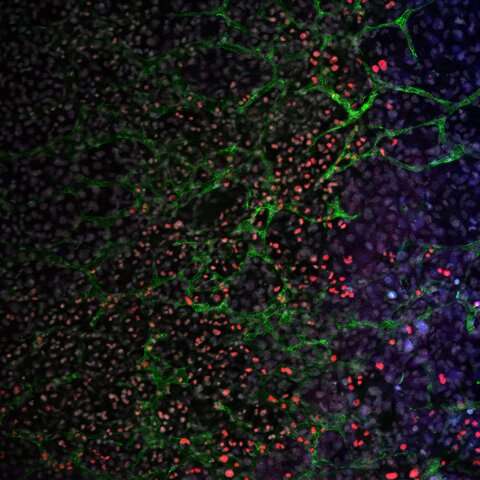Research team develops technology to improve effectiveness of stem cells in regenerative medicine

Stem cells have been holding great promise for regenerative medicine for years. In the last decade, several studies have shown that this type of cell, which in Spanish is called "mother cell" because of its ability to give rise to a variety of different cell types, can be applied in regenerative medicine for diseases such as muscular and nervous system disorders, among others. Researchers and stem cell pioneers Sir John B. Gurdon and Shinya Yamanaka received the Nobel Prize in Physiology and Medicine in 2012 for this idea. However, one of the main limitations in the application of these cell therapies is the quality of the stem cells that can be generated in the laboratory, which impedes their use for therapeutic purposes.
Now, a team from the Cell Division and Cancer Group of the Spanish National Cancer Research Center (CNIO), led by researcher Marcos Malumbres, has developed a new, simple and fast technology that enhances in vitro and in vivo the potential of stem cells to differentiate into adult cells. The research results will be published this week in The EMBO Journal.
"In recent years, several protocols have been proposed to obtain reprogrammed stem cells in the laboratory from adult cells, but very few to improve the cells we already have. The method we developed is able to significantly increase the quality of stem cells obtained by any other protocol, thus favoring the efficiency of the production of specialized cell types," says María Salazar-Roa, researcher at the CNIO, first author of the article and co-corresponding author.
In this study, the researchers identified an RNA sequence, called microRNA 203, which is found in the earliest embryonic stages—before the embryo implants in the womb and when stem cells still have their maximum capacity to generate all tissues. When they added this molecule to stem cells in the laboratory, they discovered that the cells' ability to convert to other cell types improved significantly.
To corroborate this, they used stem cells of human and murine origin, and of genetically modified mice. "The results were spectacular, both in mouse cells and in human cells. Application of this microRNA for just five days boosts the potential of stem cells in all scenarios we tested and improves their ability to become other specialized cells, even months after having been in contact with the microRNA," says Salazar-Roa.
According to the study, cells modified by this new protocol are more efficient in generating functional cardiac cells, opening the door to an improved generation of different cell types necessary for the treatment of degenerative diseases.
Malumbres, head of the CNIO Cell and Cancer Division Group, says: "To bring this asset to the clinic, collaboration with laboratories or companies that want to exploit this technology is now necessary in each specific case."
In this context, Salazar-Roa recently participated, in close collaboration with the CNIO's Innovation team, in innovation programs such as IDEA2 Global of the Massachusetts Institute of Technology (MIT) and CaixaImpulse of the "La Caixa" Foundation, from which they also obtained funding to start the development of this technology.
More information: Salazar-Roa et al, Transient exposure to miR-203 enhances the differentiation capacity of established pluripotent stem cells. EMBO J (2020). DOI: 10.15252/embj.2019104324















